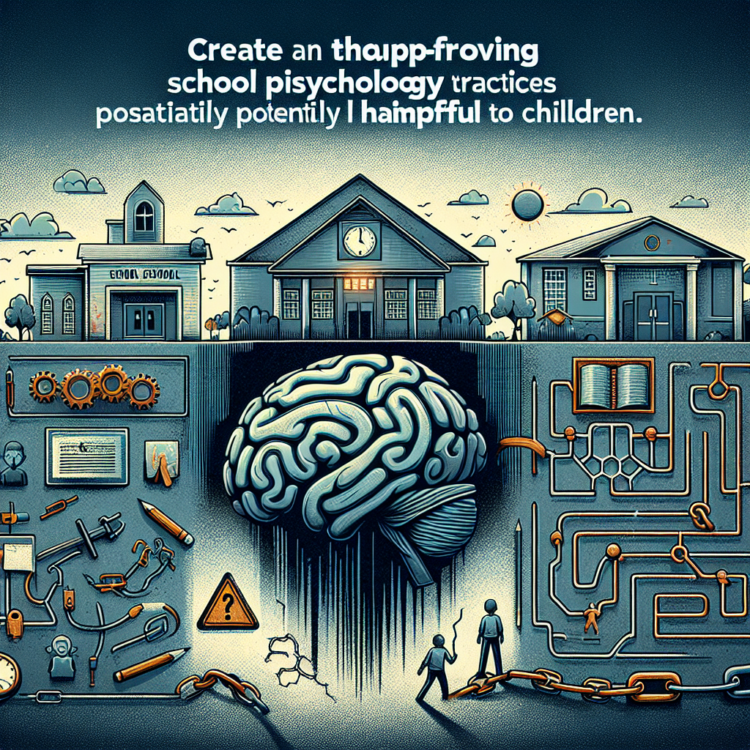Many programs ‘deeply entrenched in school culture’ are harmful to children and can cause potentially lasting damage, psychologists have warned.
Many programs ‘deeply entrenched in school culture’ are harmful to children and can cause potentially lasting damage, psychologists have warned.
They say these practices, from abstinence-only sex education to zero tolerance policies, can direct considerable funds away from evidence-based strategies, as well as giving pupils misleading information.
In new book Investigating School Psychology, researchers have carried out an exhaustive review of current literature to look at practices that continue to exist with little to no scientific support.
Editor Stephen Hupp Ph.D., Professor of Clinical Child and School Psychology at Southern Illinois University Edwardsville (SIUE), explains: “Almost every other school psychology book in the world focuses on what school psychologists should know. Our book, on the other hand, takes the extremely rare approach of focusing on what school psychologists should not know, or at least what school psychologists should be cautious about.”
Widespread school practices
Zero tolerance policies are in place in schools across the US as a response to valid safety concerns, in efforts to prevent school violence. But reviews suggest there is no evidence to support the popular practice, as they do not seem to provide an ‘effective deterrent against misbehavior’.
While advocates claim that cracking down on small offenses makes students feel safer and discourages more serious rule violations, the book cites studies that show the effectiveness of these policies has not been established. In fact, research cited in the book has found that zero-tolerance practices do not improve school safety but, in fact, ‘promote further misbehavior and do nothing to increase academic achievement’.
Other widespread programs which, according to thorough literature reviews, show little to no efficacy in reducing teen pregnancies are abstinence-only sex education and infant simulator dolls.
Although historically abstinence-only programs have been supported by the federal government, studies cited in the book have shown that sex education laws and policies emphasizing abstinence-only approaches were associated with increased rates of teen pregnancies and birth. Nonetheless, findings also indicate that most state policies continue to prioritize abstinence, without additional requirements regarding contraceptive methods.
Similarly, infant simulator dolls continue to be popular in classrooms across the States but multiple studies did not demonstrate any impact on attitudes about teen pregnancy and parenting among pupils.
Dr. Hupp explains: “A common theme across dubious approaches to preventing risky behavior is that schools widely adopt programs before the programs have been investigated with well-designed studies.”
Ineffective academic interventions
There are a number of academic interventions analyzed in the book that are still in use today. For example, the book’s contributors take aim at the popular notion that pupils learn better when information is presented in a preferred learning style, suggesting it ‘has serious conceptual and methodological weaknesses’.
But these myths are pervasive; in fact research suggests that over 80% of educators support the idea that differences between learners may be attributed to their brain hemispheric dominance (e.g., left brain vs. right brain dominance), for example.
Further literature reviews in the book suggest that working memory programs such as ‘brain training apps’ do not provide long-term improvement in working memory, and vision therapies (e.g. tinted lenses) have no impact on improving letter identification, word recognition, reading fluency, or reading comprehension.
Contributors Zachary C. LaBrot and Emily R. DeFouw point out: “Numerous strategies have been developed and tested to address academic difficulties. However, some of these strategies have little to no empirical support for improving struggling learners’ academic outcomes.
“Unfortunately, these strategies have been marketed and widely disseminated to parents, teachers, and other education professionals as simple and cost-effective solutions for academic difficulties. Therefore, it is critical that professionals be diligent, yet critical, consumers of peer-reviewed literature.”
The practice of cognitive profile analysis, which involves constructing inferences about students’ strengths and weaknesses based on a cognitive assessment’s individual subtest patterned score variation, was still found to be popular among around half of school psychologists in 2018 – despite research suggesting it lacked sufficient scientific evidence and clinical utility.
Contributors to the book also question the validity of cognitive assessments by school psychologists, the most commonly used of these being IQ tests. While they acknowledge cognitive assessments will probably always have a role in identifying or ruling out an intellectual disability, it does have limits.
What can be done about it?
“There are many reasons school psychologists might believe in myths related to psychology or engage in practices considered pseudoscientific or based on fringe science,” explains co-editor Michael I. Axelrod, PhD, Director of the Human Development Center and a Professor in the Department of Psychology at the University of Wisconsin-Eau Claire. “Engaging in critical and scientific thinking about these topics and practices might shield school psychologists from the hazards of pseudoscience, fringe science, and controversy.”
There are several ways school psychologists can protect themselves from believing in pseudoscience and engaging in dubious practices, according to the book’s editors.
Some habits they suggest that might promote evidence-based practices include: approaching ideas with a critical lens; sharpening critical thinking skills; being aware of our tendency toward cognitive errors; accepting uncertainty in our knowledge base; and recognizing the limits of science.
Dr. Axelrod continues: “These practices have real-life consequences for our children. School psychologists, teachers, and other school-based professionals should be educated to be sceptical and to request data. We should alert future professionals to possible pseudoscience so these ideas do not make their way into classrooms and schools.”




